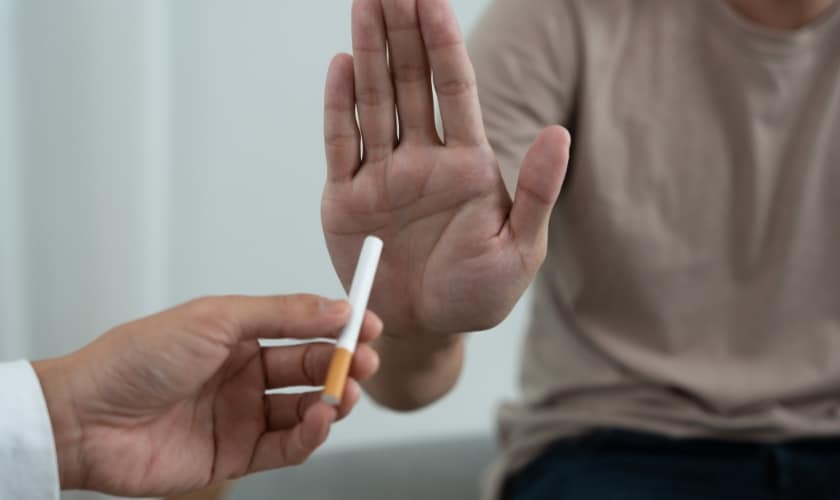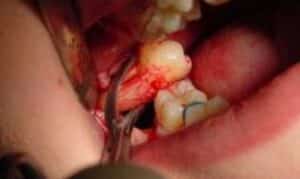Smoking is injurious to health. This is something we are tired of hearing. It’s not only applicable to your physical health but to your oral health too. Smoking hampers your oral health by making your teeth fall out. It’s also a major cause of gum disease among many people. Let’s explore what happens when you smoke after tooth extraction and things you should avoid smoking after a tooth extraction.
Why Do You Need Tooth Extraction?
One of the major reasons behind getting a tooth extraction is to pull out teeth that are severely affected by periodontal disease. If a badly damaged tooth is left untreated, the bacteria buildup spreads and affects the other teeth, for which dentists suggest extracting the tooth. Sometimes a root canal becomes a savior where you no longer need to pull out a tooth, but a tooth extraction is necessary for the worst scenario. If you have gum disease or a badly decayed, untreated tooth, you need a tooth extraction.
Tooth Extraction Aftercare
- You need to keep the extraction site clean. For this, you need to gently rinse the area with the help of an antimicrobacterial mouthwash at least three times a day. However, you should also avoid brushing directly onto the extraction site.
- Don’t smoke after tooth extraction as it might break the blood clotting, which will create complications later.
- After tooth extraction, your dentist will prescribe you medicine that needs to be followed thoroughly. Antibiotics and pain relievers are common medications that dentists give you to alleviate pain and swelling.
- Avoid having hot liquids, as it might increase swelling.
Can I Smoke After a Tooth Extraction?
Honestly, smoking after a tooth extraction is not safe. Smoking tends to interfere with the healing process of your gums, which complicates your oral health. After tooth extraction, smoking increases the pain at the extraction site, which slows the healing process. When you smoke, you suck out the cigarettes that dislodge the blood clot badly. 40% of smokers experience dry socket after a tooth extraction, compared to 5% of non-smokers.
Why the No-Smoke After a Tooth Extraction?
- The most dreaded consequence is dry socket, a painful condition where the blood clot forming at the extraction site dislodges, exposing bone and nerves. Studies show smoking significantly increases the risk of dry socket by up to 20%, compared to non-smokers at 4%.
- Cigarettes contain nicotine and carbon monoxide, which constrict blood vessels and decrease oxygen flow. This impairs your body’s natural healing process, leading to slower recovery and potentially delayed bone regeneration.
-
The smoking after a tooth extraction creates suction, potentially dislodging the protective blood clot and opening the wound to bacteria. This significantly increases the risk of infection, leading to further pain, swelling, and potential complications.
Frequently Asked Questions:
Q. Can I just smoke one cigarette after the extraction?
A: Even one cigarette can increase your risk of complications. It’s best to avoid smoking altogether.
Q: What if I can’t quit smoking?
A: Talk to your dentist about alternative pain management strategies and nicotine replacement options.
Q: How long should I wait to smoke after the extraction?
A: Ideally, wait at least 72 hours, but the longer you can abstain, the better.
Q: What are the symptoms of a dry socket?
A: Severe pain, a throbbing sensation, bad breath, and a visible bone exposure in the socket are all signs of dry socket.
Q: What if I think I have a dry socket?
A: Contact your dentist immediately for a proper diagnosis and treatment.
Smoking after a tooth extraction is a gamble with your health, and the odds are stacked against you. By understanding the risks and exploring alternative options, you can make an informed decision that prioritizes healing and a smooth recovery.
At FLOSS Dental Sugar Land, we prioritize your oral health and overall well-being. We understand the challenges smokers face, and we’re here to support you. If you’re facing an upcoming extraction or struggling with post-extraction smoking, reach out to our friendly and dedicated team. We can provide personalized guidance, tailor recovery plans, and support your journey towards a healthier smile.

